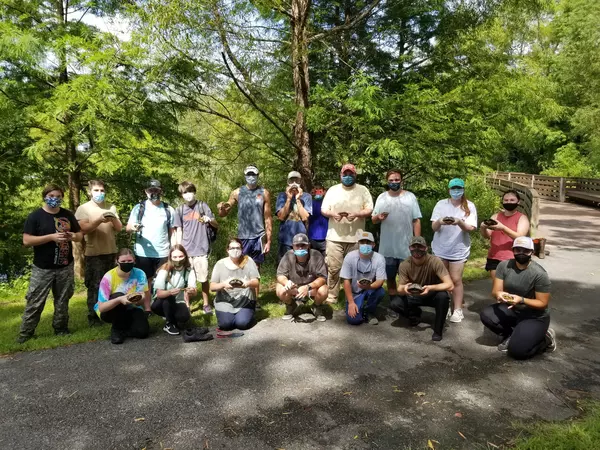Offered every semester
Taught by Dr. Wolak every Fall.
Course Content
This course is designed to give you an overview of major themes in the scientific discipline known as ecology. We will study ecological systems from different levels of organization, including individual organisms, populations, communities, and entire ecosystems. At each of the levels, we will focus on selected ecological patterns and the major processes producing such patterns. The course is primarily designed to address basic ecological questions within natural ecosystems (those unaltered by humans), but application of the underlying ecological principles is relevant to ecosystem management and impacts of humans on natural ecosystems. Principles of Ecology is a writing course, meaning that writing assignments will be used to assess your knowledge and ability to apply this knowledge to ecological questions.

Course Description
Students who successfully complete this course will acquire a fundamental knowledge of:
- 1) Abiotic and biotic factors in the environment and their influences on organisms, populations, communities, and ecosystems
- 2) The environmental and evolutionary processes that are ultimately responsible for producing ecological patterns in nature
- 3) Several quantitative approaches that ecologists use to address questions about ecological principles
In addition, students who complete this course will develop a working knowledge of how to:
- 4) Apply the scientific method to studying ecological systems and questions
- 5) Use spreadsheets and basic statistical tests to graphically display, analyze, and interpret field-collected ecological data
- 6) Produce a report written in a scientific format based on ecological data.
Student Learning Objectives
This course introduces or expands on the following Department of Biological Sciences Student Learning Objectives (SLOs):
-
Students will be able to critically review scientific articles in the life sciences. They will be able to recognize the tested hypothesis (or hypotheses) and identify the strengths, weaknesses, and major intellectual contributions of the articles [SLO 1].
-
Students will be able to effectively locate, evaluate, and summarize published information in the life sciences. They will be able to identify appropriate sources for specific information needs and use appropriate search tools and search strategies to access needed information [SLO 2].
-
Students will be able to communicate effectively to the appropriate audience in the written genres common to biological sciences (e.g., lab reports, research articles). Components of successful written communication include the effective organization of scientific content, appropriate use of language, and correct use of scientific citations [SLO 4].
-
Students will be able to apply the scientific method to formulate testable hypotheses, gather data that address the hypotheses, and analyze the data (statistically, graphically) to assess the degree to which their scientific work tests their hypotheses and draw appropriate conclusions from the data [SLO 5].
-
Students will be able to use biological evidence in a comparative framework to explain how the theory of evolution offers a comprehensive scientific explanation for the unity and diversity of life on Earth. They will be able to use specific examples to demonstrate how evolution has shaped organismal morphology, physiology, life history, and behavior [SLO 7].
-
Students will apply broad knowledge of the structure, function, and diversity of organisms to illustrate how ecological and evolutionary processes have shaped organisms at the individual, population, community, and ecosystem levels. Students will have skills related to behavior, physiology, biodiversity, systematics, evolution, ecology, and/or conservation research [SLO 8 Organismal Biology].
